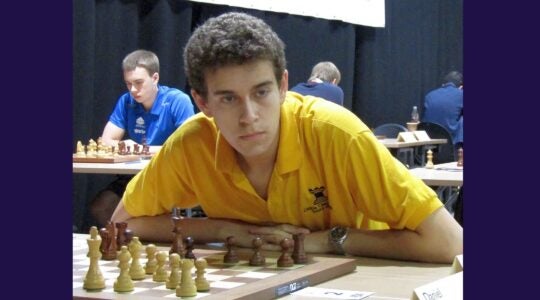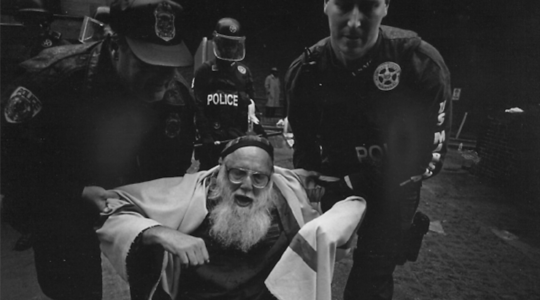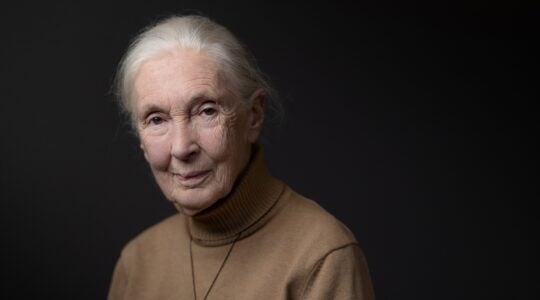This article is also available as a weekly newsletter, “Life Stories,” where we remember those who made an outsize impact in the Jewish world — or just left their community a better or more interesting place. Subscribe here to get “Life Stories” in your inbox every Tuesday.
Dan Morgenstern, 94, Holocaust survivor who fell in love with jazz
Like many Holocaust survivors, Dan Morgenstern’s early years told a story of flight: Munich, Vienna, Sweden, Copenhagen and eventually New York.
His story, however, also included jazz, which he discovered as a Jewish teen in Copenhagen during and after World War II. “There was quite a bit of jazz, good Danish jazz, and as was the case in any country that the Nazis overran, jazz became quite popular, because it represented something that was the antithesis of what they stood for,” he said in an oral history in 2007.
After enjoying the Boston jazz scene as a student at Brandeis University, Morgenstern went on to become one of the country’s most influential jazz scholars and critics. He edited the magazines Metronome, Jazz and DownBeat, reviewed music for The New York Post and The Chicago Sun-Times, and served from 1976 to 2011 as the director of the Institute of Jazz Studies at Rutgers University-Newark.
He died Sept. 7 in Manhattan. He was 94.
Elijah Rips, 75, the mathematician who cracked the ‘Bible code’

The only conclusion “that can be drawn from the scientific research regarding the Torah codes is that they exist and that they are not a mere coincidence,” mathematician Eliyahu Rips once said. (Wikipedia)
As a renowned mathematician at Hebrew University in Jerusalem, Eliyahu Rips was known among peers for his work in a field called geometric group theory. But wider fame came in 1994, when he and two Israeli colleagues claimed to have found a hidden pattern in the Hebrew letters of the Torah that hinted at deeper meanings, including the birth or death dates of dozens of Jewish scholars.
Their findings inspired “The Bible Code,” a bestselling book by journalist Michael Drosnin that claimed the codes revealed not only the birthdays of famous rabbis but also predicted future historical events including the assassination of Yitzhak Rabin. Rips distanced himself from the book’s more improbable claims, but always insisted that the text of the Torah contained meaningful patterns that were “not due to chance.”
He died on July 19 at a hospital in Jerusalem at 75.
Arline Geduldig, 93, comic’s mom and pandemic lockdown sensation

Comedian Lisa Geduldig (left) and her mother, Arline Geduldig, at an improv workshop. (Courtesy Lisa Geduldig via J.)
During the COVID-19 pandemic, comedian Lisa Geduldig created a virtual show, “Lockdown Comedy,” broadcast from her mother Arline Geduldig’s home in a Boynton Beach, Florida retirement community.
The Zoom program turned her mother into a viral sensation, as Arline, then 89, “made light of quotidian errands and revealed her interest in studly firefighters,” according to J., the Jewish newsweekly of Northern California. “I really had no idea till I started living with her” how funny she was, Lisa told J.
Arline died Aug. 7 at the age of 93; her daughter is putting together one final episode of “Lockdown Comedy” on Sept. 19 as a tribute to her mother.
Ofra Bikel, 66, Israeli-born documentary filmmaker

Ofra Bikel produced over 25 documentaries for the PBS investigative series “Frontline.” (Courtesy PBS SoCal)
Ofra Bikel, an Israeli-born documentary filmmaker best known for her work on PBS’ “Frontline” series, died Aug. 11 at her home in Tel Aviv. She was 94.
Her prize-winning films included exposes of the U.S. criminal justice system, a profile of onetime Israeli Prime Minister Ehud Olmert and a film about the struggles of Soviet émigrés adjusting to life in the United States.
In the trilogy “Innocence Lost” (1991-1997) she debunked accusations of child sex abuse against workers at a day-care center in North Carolina. “The fact that we fought for them, and were right, and managed to get seven people out of jail was astonishing, intoxicating,” said Bikel, who was briefly married to the actor and singer Theodore Bikel. “That’s when I realized what power I had in television.”
Steve Silberman, 66, ‘Deadhead’ who shone a light on autism

Author Steve Silberman, whose book “NeuroTribes” changed the conversation around autism, at the Hay on Wye Festival in 2016. (Wikipedia)
Steve Silberman, a science journalist who moonlighted and then some as a writer for and about the Grateful Dead, once likened the band’s nomadic fans to Talmud students in turn-of-the-century Russia, who would travel from town to town to hear the teachings of different rabbis. “They were the tourheads of the Torah,” Silberman, the son of two English professors, explained.
The longtime Wired magazine correspondent’s 2015 book, “NeuroTribes: The Legacy of Autism and the Future of Neurodiversity,” is credited with changing the conversation about autism and popularizing the idea that “there is no single correct way of thinking, learning or communicating,” according to the Washington Post.
Meanwhile, as a diehard Deadhead, he wrote liner notes and a reference book for the band and produced a five-disc box set, “So Many Roads (1965-1995).”
Silberman died Aug. 29 at his home in San Francisco. He was 66.
JTA has documented Jewish history in real-time for over a century. Keep our journalism strong by joining us in supporting independent, award-winning reporting.






